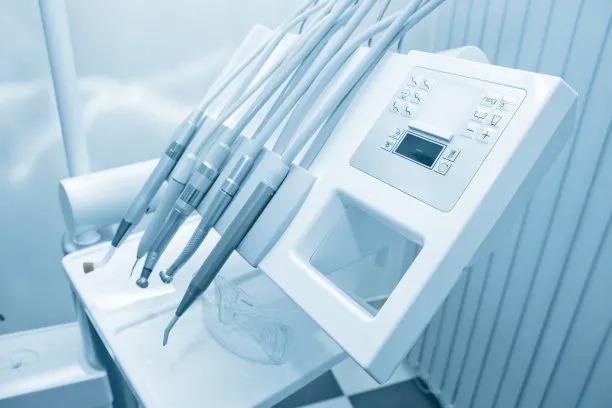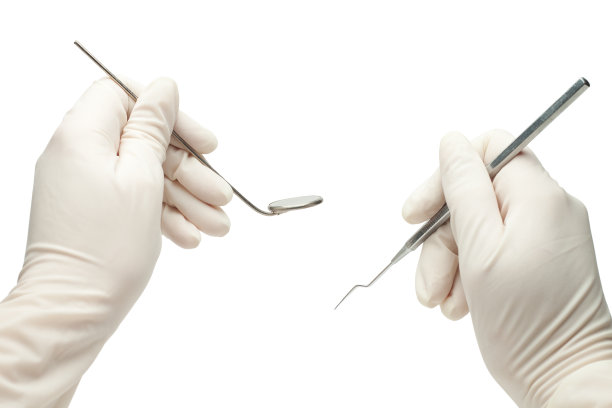Summary: Undergoing a dental filling is a common procedure for treating cavities and preventing further dental issues. However, several essential precautions must be taken to ensure optimal oral health and recovery. This article outlines four critical areas of focus: understanding the consultation process, preparing mentally and physically, managing post-procedure care, and being aware of potential complications. Each of these factors plays an important role in achieving a successful dental filling experience, minimizing discomfort, and promoting effective recovery. By following the guidelines discussed, patients can enhance their dental health and ensure a smoother healing process after their treatment.
1. Understanding the Consultation Process

Before undergoing a dental filling, it is vital to engage in a thorough consultation with your dentist. This initial meeting helps to identify the extent of tooth decay and allows for a comprehensive treatment plan catered to individual needs. Patients should feel encouraged to ask questions regarding the procedure itself, the type of filling materials available, and the expected outcomes. Understanding these factors can significantly reduce anxiety and build confidence in the treatment process.
During the consultation, dental professionals usually perform a detailed examination that may include X-rays. This step is crucial to assess the damage accurately and plan the filling accordingly. It is important for patients to be candid about their oral health history and any discomfort they may be experiencing. Transparency ensures that dentists can make informed decisions for a successful outcome.
Additionally, discussing any allergies or sensitivities to dental materials is essential. A good relationship between the patient and dentist promotes open communication. Being informed about the different options for fillings鈥攕uch as amalgam, composite, or porcelain鈥攁llows patients to make empowered choices regarding their dental care.
2. Preparing Mentally and Physically for the Procedure
Preparation for dental fillings extends beyond understanding the procedure; it also involves mental and physical readiness. Patients should consider practicing relaxation techniques, such as deep breathing or meditation, to help manage any pre-treatment anxiety. Being calm before the procedure contributes to a more favorable experience and can make the process go smoother.
Physically, it is advisable to avoid eating heavy meals right before the appointment, particularly if sedation will be involved. A light snack may maintain energy levels, but heavy foods can lead to discomfort during the treatment. Moreover, planning transportation in advance is important, as patients may need assistance getting home post-procedure, especially if sedatives are administered.
Wearing comfortable clothing can also contribute to a positive experience during the dental appointment. Ensuring that personal comfort needs are met allows patients to focus on the treatment instead of being distracted by discomfort, paving the way for a more successful filling procedure.
3. Managing Post-Procedure Care Effectively
The postoperative period is crucial for effective recovery after a dental filling. Patients should adhere to any specific care instructions given by their dentist to ensure proper healing. For instance, avoiding hard or chewy foods in the immediate hours following the treatment can prevent damage to the new filling and reduce discomfort.
Swelling or slight discomfort is common after the procedure. Over-the-counter pain relievers can help manage these symptoms, but it is essential to follow the dentists recommendations regarding dosage and medication types. Additionally, patients should be vigilant about oral hygiene; gently brushing and flossing around the filling can prevent further decay and infection.
Monitoring for any signs of complications, such as increased pain or sensitivity, is also important. If these issues arise, contacting a dentist immediately is crucial for addressing any potential problems before they escalate. Proper post-procedure care not only contributes to healing but also helps maintain overall oral health.
4. Being Aware of Potential Complications
While dental fillings are generally safe and effective, being aware of potential complications is essential for any patient undergoing the procedure. One common issue is sensitivity to hot or cold temperatures after the filling is placed. This can be temporary, but if it persists, patients should consult their dentist for advice on managing the condition.
Another complication may arise from improper placement of the filling, leading to discomfort or issues with bite alignment. Patients should pay attention to how their teeth feel when they bite down after the procedure. If something feels off, reaching out to the dentist can help resolve the issue promptly.
Lastly, allergic reactions to filling materials, though rare, can occur. Symptoms may include swelling, itching, and redness around the filling. If such symptoms arise, seeking immediate dental attention is vital to ensure corrective measures can be taken. Recognizing these complications early on can lead to a better recovery experience.
Summary:
In summary, being well-prepared before undergoing a dental filling procedure promotes a smoother experience and better recovery. Understanding the consultation process, preparing mentally and physically, managing post-procedure care, and being aware of potential complications certainly contribute to achieving optimal oral health. Each of these elements ensures that patients can navigate their dental journey confidently and effectively.
This article is compiled by Vickong Dental and the content is for reference only.
Vickong Dental
Vickong Dental is a large medical group established in Hong Kong in 2008 by professors from well-known medical universities in Guangdong and Hong Kong, as well as medical doctors from key national '985' universities (including Master's supervisors and senior professors). The chain of branches brings together expert dentists with PhDs and Master's degrees from Hong Kong and Mainland China, committed to providing high-quality dental treatment.
"Vickong Dental Practices the University Motto of 'Healing and Serving Society,' with a Stable Operation for Sixteen Years. It Has Been honored with Hong Kong Enterprise Leaders's Choice,' and is a Global Trusted Implant Center for the Nobel Implant System. Recommended by Hong Kong Metro Broadcast and Guangdong Television, it Serves Customers from Over Thirty Countries and Regions, Gaining the Trust and Favor of Citizens from the Guangdong-Hong Kong-Macau Greater Bay Area and Surrounding Cities.

Thousands of customers' unanimous praise
The most recognized and highly recommended dental service by customers in the Guangdong-Hong Kong-Macau Greater Bay Area
We Ensure You Receive Detailed Care and Attention Here
Hong Kong standards, Shenzhen prices, Your Trusted English-speaking dentists

Vickong Dental Medical-Grade Instrument Disinfection Process
Vickong Dental Medical-Grade Instrument Disinfection Process

Vickong Dental Chain: A Warm and Comfortable Environment for Treatment






Appointment Hours

Q&A
Why choose Vickong Dental?
Vickong Dental practices the university motto 「Medicine to Benefit Society」, with each branch bringing together highly qualified dentists with doctoral and master’s degrees from Hong Kong and the Mainland, and has maintained seventeen years of steady operation。Recipient of 「2024 Hong Kong Enterprise Leaders Brand」, 「2025 Hong Kong Enterprise Leaders Brand」, a Nobel Biocare Global Trusted Implant Center, and a brand recommended by Metro Radio Hong Kong and Guangdong TV。
To date, we have served customers from more than thirty countries and regions,earning exceptionally high word-of-mouth recognition and trusted recommendations from residents across the Guangdong-Hong Kong-Macao Greater Bay Area and surrounding cities
We have eight major branches in Zhuhai、Shenzhen,and a consultation and service assurance center in Hong Kong,so you can book a free consultation at any time for any questions,which is very reassuring.
If I do not accept the quotation after the CT scan, will I be charged??
No! As long as the actual treatment has not started, you will not be charged any fees.
Will there be any additional charges during the treatment process?
No, there won’t be any additional charges. Before treatment begins, we will clearly explain the treatment plan and its corresponding fees. Only after the patient agrees and signs the consent form will we proceed with the dental service.
Can I pay in Hong Kong dollars?
Yes. Vickong Dental accepts payment in Hong Kong dollars. The amount will be converted based on the exchange rate of the day, and the applicable rate will be clearly communicated to you in advance.
Can I reschedule my appointment at any time?
Yes. Please contact us via **WeChat** or **WhatsApp** as early as possible, providing your original appointment time and details, along with your preferred new date and time slot for rescheduling.













